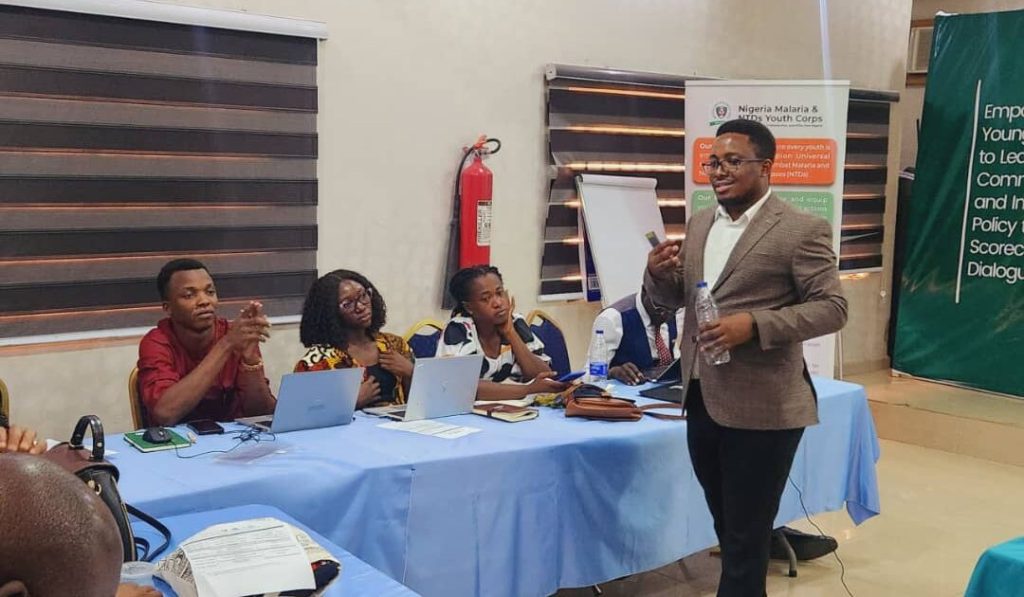Nigeria’s Malaria Challenge: A Call to Action for Youth and Women
Nigeria bears the unenviable title of the global leader in malaria infections, accounting for a staggering 25% of malaria deaths worldwide. This stark reality underscores the urgent need for a reinvigorated and inclusive approach to combatting the disease. Stakeholders in the health sector are increasingly recognizing the critical role that Nigerian youth and women can play in turning the tide against this persistent public health threat. A recent engagement meeting in Abuja, organized by the African Leaders Malaria Alliance (ALMA) in collaboration with The Global Fund and Malaria and NTDs Youth Corps, highlighted the importance of mobilizing these demographic groups in the fight against malaria.
ALMA, a key player in malaria service provision and advocacy, emphasizes the multifaceted nature of the challenge. Beyond providing essential services, ALMA utilizes innovative approaches, such as sports-based outreach, to engage communities and raise awareness about malaria prevention and treatment. The organization recognizes the complex interplay of factors contributing to the persistence of malaria, including climate change, funding limitations, the emergence of drug-resistant malaria parasites, and the discovery of new mosquito species in several countries. Furthermore, humanitarian crises, such as those unfolding in South Sudan and Sudan, coupled with increasing numbers of immigrants and refugees, further complicate malaria control efforts. Despite these challenges, ALMA remains steadfast in its commitment to achieving zero malaria, emphasizing that this ambitious goal requires the collective action of every individual.
The Nigerian government, through the Federal Ministry of Health, echoes the call for a more comprehensive approach to malaria control. Chinyere Nkobie, representing the Gender Adolescent School Health and Elderly Care Desk, underscores the need for a critical examination of why, despite significant resource allocation, malaria continues to pose a substantial threat. Nkobie advocates for integrating a gender perspective into malaria interventions, arguing that this will provide crucial insights into the barriers preventing women and children, particularly, from accessing essential services. By understanding these barriers, which often stem from deeply ingrained gender norms and cultural practices, interventions can be more effectively tailored to reach these vulnerable populations.
The initiative to involve women and youth in the malaria fight has garnered support from various stakeholders. The Nigeria End Malaria Council, represented by Beeve Hua, lauds this approach as a significant step forward. Hua emphasizes the importance of harnessing the energy and potential of young people to drive progress towards eliminating malaria. The collective effort of government agencies, international organizations, and community stakeholders reflects a growing recognition that a multi-pronged approach is essential to achieving lasting success in the fight against malaria.
This renewed focus on community engagement, particularly among youth and women, is crucial for several reasons. Firstly, women often bear the primary responsibility for childcare and household management, placing them at the forefront of healthcare decision-making for their families. Educating and empowering women about malaria prevention and treatment can have a significant impact on reducing its incidence within households. Secondly, engaging youth allows for the cultivation of a new generation of advocates and champions in the fight against malaria. Their energy, innovation, and technological savviness can be invaluable assets in disseminating information, promoting behavior change, and advocating for effective policies.
The call to action for youth and women is not merely a symbolic gesture; it is a strategic imperative. By actively involving these groups, Nigeria can leverage their potential to drive community-level change and accelerate progress towards malaria elimination. This participatory approach, coupled with ongoing efforts in research, innovation, and resource mobilization, holds the key to overcoming the complex challenge of malaria and creating a healthier future for all Nigerians. The message is clear: zero malaria starts with each and every individual taking ownership of the fight and contributing to a collective effort.
The strategy of emphasizing the role of women and youth in malaria eradication is not only sensible from a public health perspective but also from a social and economic development standpoint. Empowering women with knowledge and resources related to malaria prevention and treatment not only protects their families but also strengthens their role within their communities. Youth engagement, on the other hand, fosters a sense of ownership and responsibility towards public health issues, creating a ripple effect that can extend beyond malaria control to other areas of development.
The challenges facing Nigeria in its fight against malaria are significant, but not insurmountable. By embracing a holistic and inclusive approach, one that recognizes the pivotal role of women and youth, the country can make significant strides towards achieving its goal of zero malaria. This requires sustained commitment from all stakeholders, including government agencies, international organizations, community leaders, and individuals. The fight against malaria is a shared responsibility, and only through collective action can Nigeria hope to overcome this persistent public health challenge. The empowerment of women and youth is not just a strategy; it is an investment in a healthier and more prosperous future for all.


